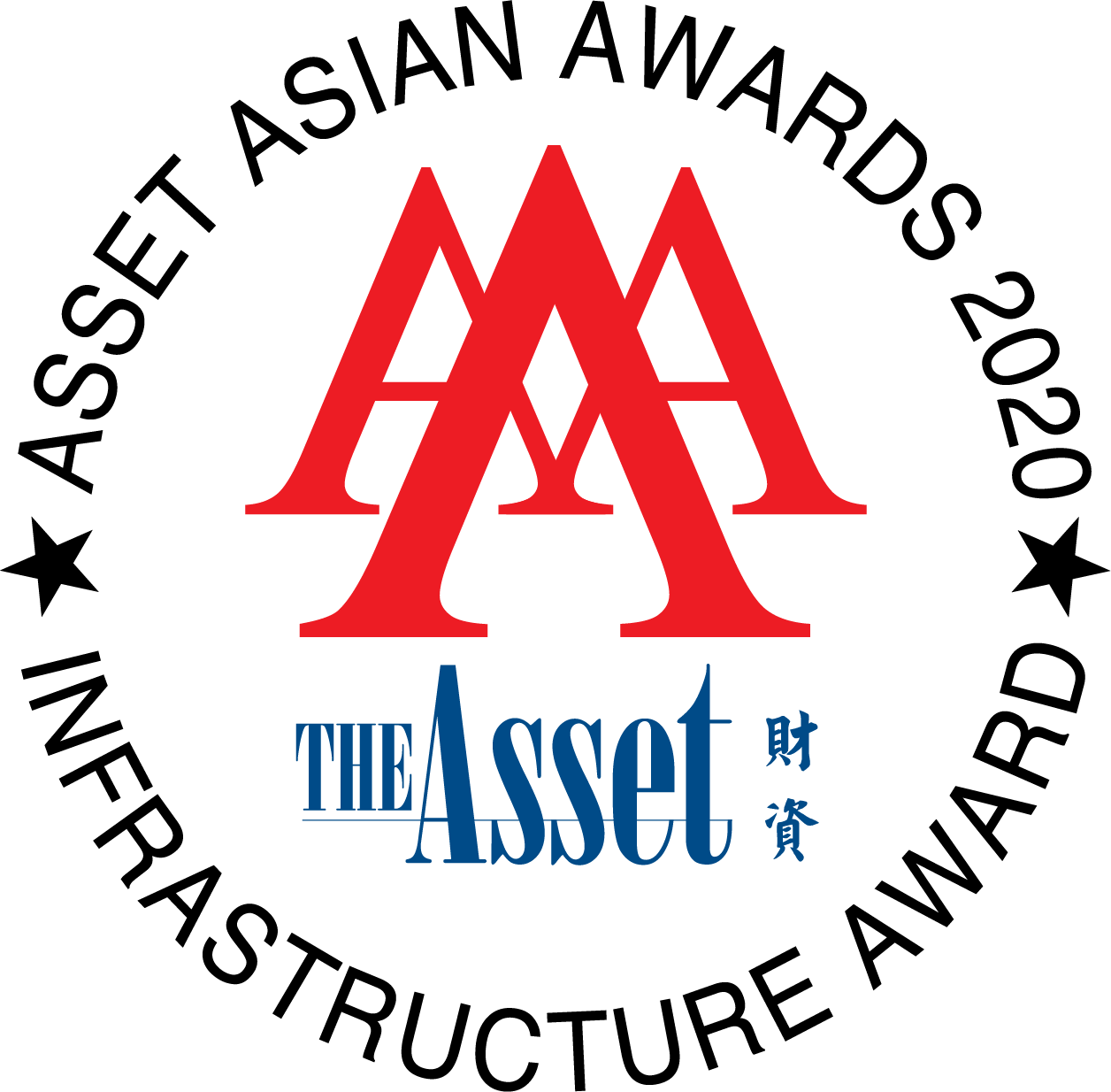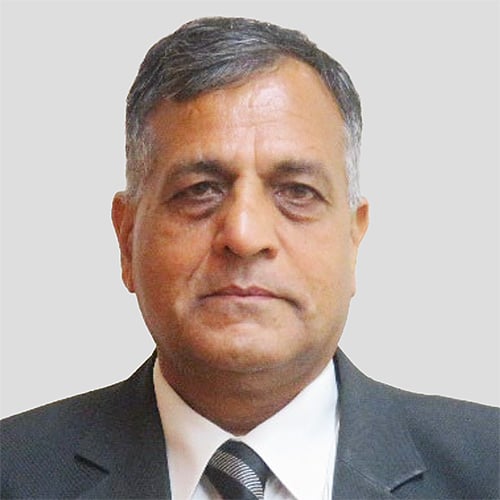
Infrastructure finance had a fantastic run in 2019. But with the Covid-19 pandemic, the run was rudely interrupted – but not halted. 2020 isn’t going to produce the same upbeat results that the previous year did. It is, however, a moment of reflection as to how the region should approach the development of infrastructure that incorporates resiliency to underpin a resumption of growth in the post-pandemic world.
As the health emergency began to spread in the early months of 2020, projects were being pushed back or delayed. Those that were in the execution stage proceeded, albeit at a slower pace. Sponsors are revisiting their plans and looking to decide whether or not to postpone projects due to the big drop in demand, as, for instance, is the case in the power sector. Renewable energy projects, though, remain generally on track as demonstrated by the financial close achieved by offshore wind and floating solar farm projects in Taiwan.
Amid the market disruption, the liquidity situation remains intact. Banks have become risk-averse, as indicated by tightened credit terms and higher margins on the back of increased capital costs. This, in turn, is driving a re-pricing of new deals by about 50bp per annum. Such a re-pricing is also a reflection of what a senior banker describes as a more realistic understanding of risk, which he says is slightly underpriced.
A notable trend witnessed since last year has been the level of engagement demonstrated by export credit agencies (ECAs), especially those in the Taiwanese renewable energy sector. ECAs provided the added comfort to banks and institutional investors that allowed them to participate in transactions. Certain deals require ECAs because of size and complexity, and the need to mitigate risk.
Last year, also saw the emergence of private credit as another source of funding for project finance and infrastructure projects. One large sovereign wealth fund shared with The Asset that its participation started some two years ago. This is engendering a mindset change in how project finance is packaged to include a sleeve for private credit investors hungry for yield. This is most notable in the financing of renewable energy projects that bridge the gap between bank syndicates and equity sponsors.
These were the themes and trends that emerged when the board of editors at The Asset evaluated the performance of the various project finance banks and institutions, as well as the other stakeholders for The Triple A Infrastructure Awards 2020. Sustainable financing resonated across the region with the heightened emphasis on renewables and on meeting the UN Sustainable Development Goals.
German renewable energy company wpd is voted as The Asset Triple A Sponsor of the Year based on its sponsorship of the 640-megawatt offshore wind farm being developed in Yunlin county in Taiwan, the largest offshore wind transaction funded in the Asia-Pacific region. In April of this year, the company showed continued appetite, signing an agreement with Taiwan Green Power, an offshore wind power developer belonging to the Taiwanese LeaLea Group, to jointly develop the offshore wind farm site No 28, which is expected to be part of the third tender round in Taiwan.
Cube Highways, a Singapore-based company that invests in road and highway projects in India is voted as The Asset Triple A Investor of the Year – Private Equity. The company has built an attractive portfolio of operational assets through the acquisition of about 8,900 lane-kilometres across 28 operating assets. In November of last year, it emerged as the winning bidder for the third bundle of toll-operate-transfer projects in India – the third round of the National Highways Authority of India’s road monetization programme.
Taiwan Life Insurance Company is voted as the Investor of the Year – Insurance Company. It is the first insurance company in Asia to finance an offshore wind farm project in Taiwan, Formosa 2, thus unlocking new sources of financing for future transactions. By joining the project finance community, Taiwan Life is now engaging potential developers and financial advisers to develop similar project finance instruments that are tailored to its bespoke investment portfolio.
Among the top project financiers, MUFG Bank wins the Project Finance House of the Year award, demonstrating the strength of its franchise across different asset classes in the region. It was the financial adviser for the Jambaran-Tiung Biru US$1.85 billion gas development and processing project in Indonesia and a mandated lead arranger in several winning deals, including the two offshore wind projects in Taiwan that defined the project finance and infrastructure sector in the region in 2019.
French rival BNP Paribas beats the competition to secure the ESG Infrastructure Bank of the Year for arranging several renewable energy and sustainable financing transactions in different capacities. It was a joint sustainability co-ordinator and arranger for the Sydney Airport Finance Company’s A$1.4 billion (US$965.50 million) syndicated sustainability-linked loan facility. This landmark transaction is the first of its kind in Australia and the issuance enhances the company’s environmental, social and governance (ESG) performance by directly linking the airport’s sustainability objectives to its capital costs. The bank was both mandated and lead arranger in the two winning renewable energy projects in Taiwan – the Yunneng Wind Power Company and Formosa 2 Wind Power Company.
Sumitomo Mitsui Banking Corporation (SMBC) is voted as the Project Finance Advisory House of the Year. It was the financial adviser for the Yunneng Wind Power Company and has secured 11 new financial advisory mandates in 2019. These include an LNG-to-power project in Vietnam, an expressway public-private partnership (PPP) bid in Bangladesh, hydro projects in Indonesia, and a waste-to-energy project in Australia. Its current pipeline makes SMBC one of the most active financial advisers in Asia with 27 ongoing advisory mandates across the region.
HSBC retains the accolade as the ECA Co-ordinator of the Year. It was one of the ECA co-ordinators for the US$1 billion-equivalent, Korea Trade Insurance Corporation (K-Sure)-covered facilities deal for Reliance Jio Infocomm of India. In that deal it also acted as joint mandated lead arranger and lender. In Bangladesh, the US$1.3 billion-equivalent facilities for Bangladesh Chemical Industries Corporation – in which the Japan Bank for International Co-operation, Nippon Export and Investment Insurance, and the Multilateral Investment Guarantee Agency were involved – represented the seventh ECA-supported transaction (for an equivalent total of US$2.8 billion) that HSBC has completed for the Bangladeshi government since 2012.
For the third year in a row, the International Finance Corporation (IFC) emerges as the Multilateral Agency of the Year for spearheading projects in Asia-Pacific frontier and emerging markets, and acting as transaction adviser and lender. It was a lender, among others, in the US$453 million loan facilities for the Nepal Water and Energy Development Company and in the US$317 million loan facilities for the so-called Super Six wind farm programme in Pakistan. IFC is also the lead transaction adviser for a water project in Bangladesh, which is expected to provide 24/7 access to a piped supply of pressured potable water to about 250,000 people by 2024.
For the ECA of the Year, the award goes to K-Sure, which participated in four winning project finance transactions in 2019, including those for Formosa 2 Wind Power Company in Taiwan, the Pengerang Refinery and Petrochemical in Malaysia, Reliance Jio Infocomm in India, and the Nepal Water and Energy Development Company.
PT Penjaminan Infrastruktur Indonesia (PII) wins the PPP Agency of the Year for the second year in a row. Up to 2019, PII had guaranteed 20 PPP projects from five sectors with over 210 trillion rupiah (US$14.70 billion) of total project value. The PPP projects signed in 2019 included the multi-functional satellite project, one of the pilot projects from the Ministry of Communication and Information, the Semarang-Demak toll road project, and the Makassar-Parepare railway project.
Moody’s Investors Service wins the Project Finance Rating Agency of the Year on the back of its high coverage of the sector during the review period. In 2019, it publicly rated 146 project finance and infrastructure issuers and entities in the Asia-Pacific region and rated 45 deals, 10 of which were done on a sole basis. Moody’s manifested a pro-active engagement with market participants and investors through a series of investors’ calls, conferences, briefings, roundtables and webcasts. It offers diverse and timely research reports on the sector, particularly on how it was being impacted by the Covid-19 pandemic.
China Lianhe Credit Rating is the Project Finance Rating Agency of the Year in China. Last year, it rated 39 issues from four issuers in the oil and gas sector, 38 issues from 15 issuers in the power sector, 341 issues from 180 issuers in the public sector, and seven asset-backed securities deals. The company is currently building up its ESG methodology.
In Malaysia, the award for Project Finance Rating Agency of the Year goes to Malaysian Rating Corporation (MARC). Backed by a strong project finance team, MARC has done a lot of work in the area of green bonds and has rated a number of large-scale solar projects. It has increased its reach in terms of its impact bond assessment rating, which underpins the ESG-related issuance in the country. All the major Malaysian ports are rated by MARC. A notable MARC-rated issuance in 2019 was the Penang Port’s one billion ringgit (US$233.65 million) Islamic medium-term note programme to refinance a maturing loan, which was taken to fund the port’s capacity expansion in 2008.
Linklaters is voted Project Finance Law Firm of the Year. It acted as legal counsel in a number of winning renewable and green projects in Taiwan and India. It also represented clients in deals for the Airport Authority Hong Kong and for Gulf PD Company in Thailand.
For a full list of the winners, please click here.
For the full list of the best infrastructure deals of the year, please click here
For more information about receiving the awards, please contact [email protected].
For more details about The Asset Awards, please click here.
As part of The Asset's ongoing coverage of the exciting opportunities in Asian infrastructure, we will be hosting an important webinar with key decision makers on July 15, 2020. We invite you to take part in this interactive virtual discussion where we will touch on several trends facing infrastructure development in Asia. Please click here for more information about the webinar.









